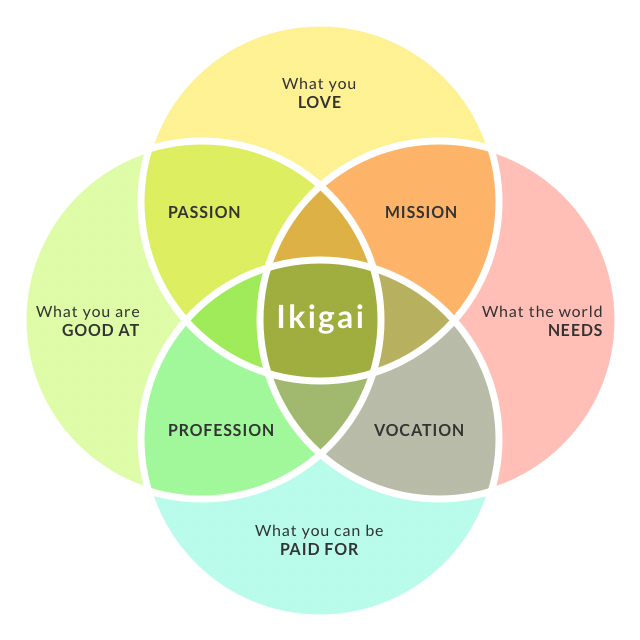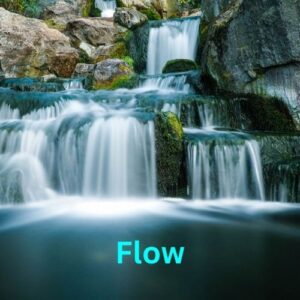
Ikigai: The Japanese Secret to a Long and Happy Life
- In Japanese, Ikigai is written by combining the symbols that mean “life” with “to be worthwhile“.
- Translates roughly as ‘the happiness of always being busy.’
- There is a passion inside you, a unique talent that gives meaning to your days and drives you to share the best of yourself until the very end. If you don’t know what your Ikigai is yet, as Viktor Frankl says, your mission is to discover it.
- Our Ikigai is different for all of us, but one thing we have in common is that we are all searching for meaning. When we spend our days feeling connected to what is meaningful to us, we live more fully; when we lose the connection, we feel despair.
- Our Ikigai is hidden deep inside each of us, and finding it requires a patient search. According to those born on Okinawa, the island with the most centenarians in the world, our Ikigai is the reason we get up in the morning.
- Once you discover your Ikigai, pursuing it and nurturing it every day will bring meaning to your life.
- They have an important purpose in life, or several. They have an Ikigai, but they don’t take it too seriously. They are relaxed and enjoy all that they do.
- One thing that everyone with a clearly defined Ikigai has in common is that they pursue their passion no matter what.
The 10 Rules of Ikigai
- Stay active; don’t retire.
- Take it slow.
- Don’t fill your stomach.
- Surround yourself with good friends.
- Get in shape for your next birthday.
- Smile.
- Reconnect with nature.
- Give thanks.
- Live in the moment.
- Follow your ikigai.

Morita Therapy:
- “Many Western forms of therapy focus on controlling or modifying the patient’s emotions. In the West, we tend to believe that what we think influences how we feel, which in turn influences how we act.
- In contrast, Morita Therapy focuses on teaching patients to accept their emotions without trying to control them, since their feelings will change as a result of their actions.” “Logotherapy and Morita Therapy are both grounded in a personal, unique experience that you can access without therapists or spiritual retreats: the mission of finding your Ikigai, your existential fuel. Once you find it, it is only a matter of having the courage and making the effort to stay on the right path.”

Flow:
- “The happiest people are not the ones who achieve the most. They are the ones who spend more time than others in a state of flow. ”
- “In order to achieve this optimal experience, we have to focus on increasing the time we spend on activities that bring us to this state of flow, rather than allowing ourselves to get caught up in activities that offer immediate pleasure.”
- “Concentrating on one thing at a time may be the single most important factor in achieving flow.”
- “Japanese people often apply themselves to even the most basic tasks with an intensity that borders on obsession.”
- “Our ability to turn routine tasks into moments of microflow, into something we enjoy, is key to our being happy, since we all have to do such tasks.”
- “Artists, for example, who carry the torch of their Ikigai instead of retiring, have this power. Art, in all its forms, is an Ikigai that can bring happiness and purpose to our days. Enjoying or creating beauty is free, and something all human beings have access to. ” “Artists know how important it is to protect their space, control their environment, and be free of distractions if they want to flow with their ikigai.”
- “Many such artists might seem misanthropic or reclusive, but what they are really doing is protecting the time that brings them happiness, sometimes at the expense of other aspects of their lives. They are outliers who apply the principles of flow to their lives to an extreme. ”
Inspired by
Michiko Kumano